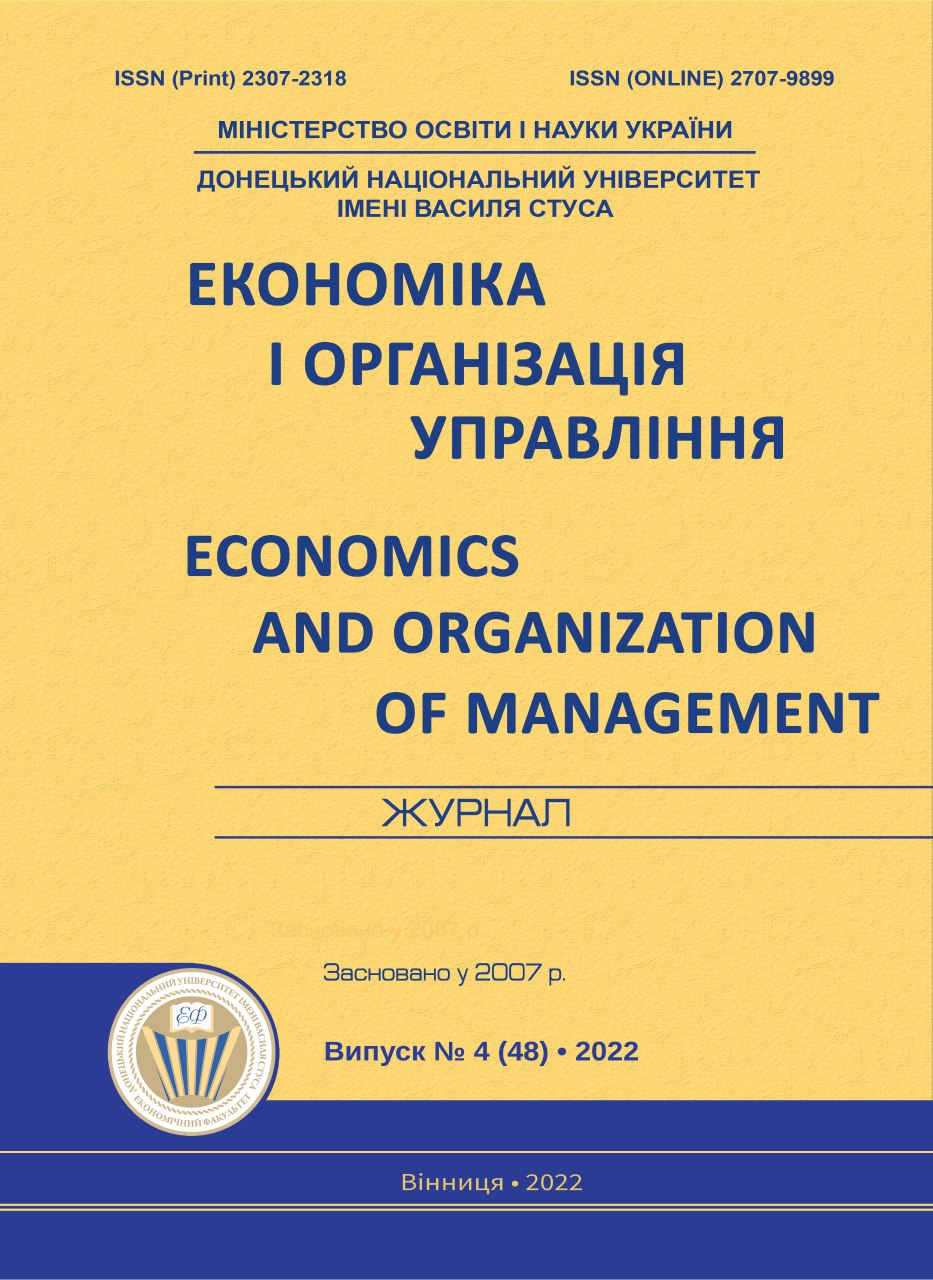Вплив туризму на зайнятість населення країни
DOI:
https://doi.org/10.31558/2307-2318.2022.4.4Ключові слова:
туризм; розвиток; фактори; населення; ВВП; доходи; зайнятістьАнотація
Сфера туризму розвивається все більшими темпами. Маючи фінансові можливості, вільний час та з метою задоволення особистих потреб, люди більше вибирають подорожі по різних країнах світу. Все це пов'язано з розширеними інформаційними можливостями. Зазначається, що останнім часом в Азербайджані проводиться масштабна робота з розвитку туризму, а Карабах, який до 10 листопада 2020 року перебував під вірменською окупацією був виключений з цих процесів. Вірменія окупувала 20% земель Азербайджану. Це завдало шкоди усім сферам економіки Азербайджану, у т.ч. туристичному сектору.
У сфері розміщення та харчування сьогодні сформувалися великі готельні мережі, туристичні оператори. Також поступово розширюється ринок авіаперевезень. У статті зазначається, що присутність готельних компаній у різних країнах, які відіграють ключову роль у розвитку індустрії туризму, прискорює їх світове визнання. Фактори, що впливають на розвиток туризму, відіграють вирішальну роль у визначенні стану розвитку туристичного бізнесу країни.
Світові ринки праці та їх структура взаємопов`язані з розвитком туризму. За оцінками, у світі налічується близько 325 мільйонів осіб, зайнятих на постійній або тимчасовій роботі в туризмі та суміжних галузях. У результаті дослідження встановлено, що зайнятість населення в різних країнах при мультиплікативному ефекті туризму в кілька разів вище, ніж при прямій зайнятості. Зокрема, у країнах із мультиплікативною ефективністю цієї сфери рівень зайнятості населення на 4,5-11,8% вищий, ніж при прямій зайнятості. Це безпосередньо впливає на створення великої кількості робочих місць у туристичному секторі та суміжних галузях і зумовлено внеском туристичного сектора у ВВП країни та зростанням доходів від туризму.
Посилання
Oborin, M. S. (2021). Consequences of the impact of the COVID-19 pandemic on world tourism. Online Scientific Journal. T15, No.1(93). Pp. 47-58.
UNWTO World Tourism Barometer 2021. URL : https://webunwto.s3.eu-west 1.amazonaws.com/s3fspublic/ 2021-07
Tourism grows 4% in 2021 but remains far below pre-pandemic levels. URL : https://www.unwto.org/news/tourism-grows-4-in-2021-but-remains-far-below-pre-pandemic-levels
Dzhandzhugazova, E. A., Blinova, E. A., Orlova, L. N. & Romanova, M. M. (2016). Innovations in Hospitality Industry. International journal of environmental & science education. Vol. 11, No. 17.
World Heritage in Azerbaijan. URL : https://unesdoc.unesco.org/ark:/48223/pf0000368373
Tourism in Azerbaijan. Statistical totality (2022). The State Statistics Committee of the Republic of Azerbaijan. Baku. 101 p.
Tourism in Azerbaijan. URL : https://www.worlddata.info/asia/azerbaijan/tourism.php
2020: A year in review. COVID-19 and Tourism. Tourism in pre-pandemic times. URL : https://www.unwto.org/covid-19-and-tourism-2020
Lew, A. A. (2011). Tourism's role in the global economy. Tourism Geographies. No 13(1). Pp. 148-151.
Alhowaish, A. K. (2016). Is Tourism Development a Sustainable Economic Growth Strategy in the Long Run? Evidence from GCC Countries. Sustainability. 8(7): 605. URL : https://doi.org/10.3390/su8070605
Karpenko, A., Gurbyk, Yu. (2020). Modern models of state regulation of tourism. Regional aspects of productive forces development of Ukraine. No 25. Pp. 23-30.
The World Tourism Organization (UNWTO) is the United Nations agency responsible for the promotion of responsible, sustainable and universally accessible tourism. URL : https://www.unwto.org/
Dzhyndzhoian, V. V., Salenko, A. S. & Sazonets', I. L. (2021). Sotsial'ni determinanty rozvytku sfery posluh v kontseptsii formuvannia postindustrial'noho suspil'stva. Monograph. Rivne, Volyn. Oberehy. 208 p.
Atamanchuk, Z.A. & Demyanova, Yu. O. (2019). International tourism as a priority area of socio-economic development of the countries of the world. Scientific Bulletin of Uzhhorod University. Economy series. No 2(54). Pp. 23–28. URL : http://visnyk-ekon.uzhnu.edu.ua/article/view/184847
Strategic Roadmap on the development of specialized tourism industry in the Republic of Azerbaijan. Decree of the President of the Republic of Azerbaijan. 6.12.2016. Baku. 2016. 98 p.
Number of international tourist arrivals worldwide from 2005 to 2021. URL : https://www.statista.com/statistics/186743/international-tourist-arrivals-worldwide-by-region-since-2010/
The anatomy of tourism. International social science journal. 1980. No 1. URL : http://surl.li/ejeus
Top 27 hotel chains and brands worldwide. URL : https://planetofhotels.com/guide/en/blog/largest-hotel-chains
Momont, T. V. (2012). Main factors of development of the market of tourist services. Economics. Management. Innovations. Series: Economic sciences. 2012. No. 1. URL : http://nbuv.gov.ua/UJRN/eui_2012_1_35.
Sahalakova, N. O. (2016). Tourism: business processes, prices and pricing. Monograph. Kyiv. 416 p.
Gladkey, A. V. (2020). International tourism vs. COVID-19: trends, forecasts, prospects. Research Result. Business and Service Technologies. No 6(4). Pp. 3-10.
The current state of global tourism and factors shaping the industry in 2022 and beyond. URL : https://www.hlb.global/the-current-state-of-global-tourism-and-factors-shaping-the-industry-in-2022-and-beyond/
International tourist arrivals by region. URL : https://ourworldindata.org/grapher/international-tourist-arrivals-by-world-region
Sintayehn, A., Berhani, F. & Tesfaye, S. (2016). Employment Opportunities and Challenges in Tourism and Hospitality Sector. Journal of Tourism & Hospitality. Vol. 05 (06). Pp. 3-12.
Ismayilov, V. I. (2017). The main directions of formation of tourism-recreation complex in Azerbaijan. Journal Business Economics. Vol. 2. Pp. 562-569.
Ismayilov, V. I., Almasov, N. N. & Mirzayev, S. (2021). The programme of reduction and profilling of long-term unemployment in Azerbaijan. The journal of economic sciences: Theory and Practice. Baku. Vol. 78. Pp. 40-65.
World Tourism and Travel Council. URL: https:// wttc.org

